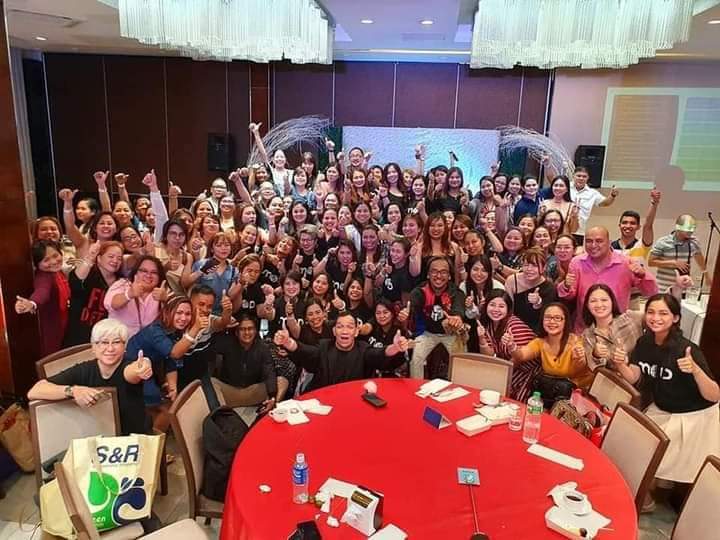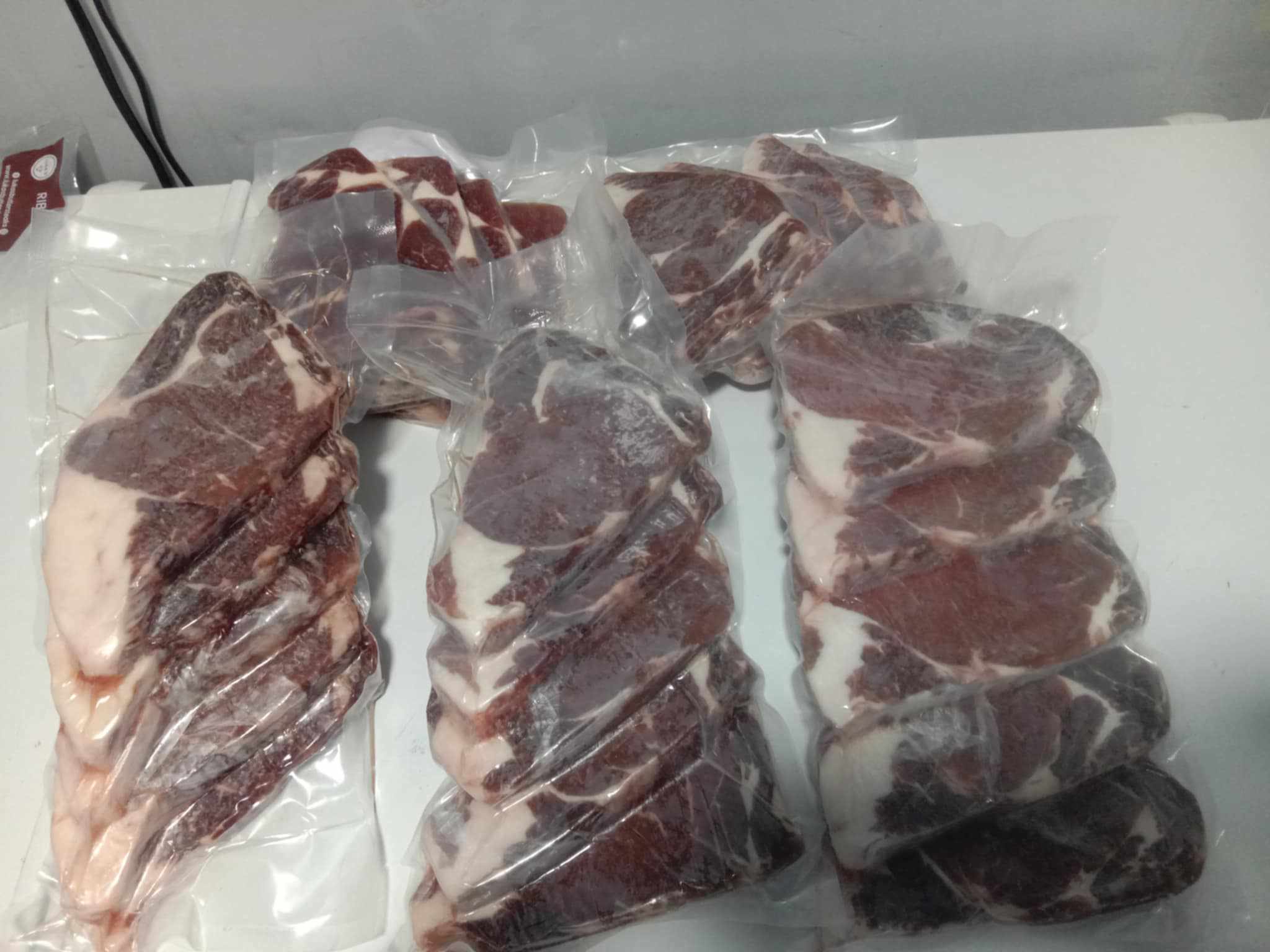At A Glance
- I saw that a lot of people needed to learn about LCIF. In 2018, there were 18 million overweight/obese people in the Philippines and by 2023, the number rose to 27 million, and nobody was teaching it properly.
His Facebook community ‘LCIF by Coach Dave Aguila’ has 2.1 million members. In the page, Filipinos share their weight loss journeys, and how Coach Dave’s community has helped them reach their goals. A pioneer of the LCIF (low carb, intermittent fasting) movement since 2018, Coach Dave explores new territory as he starts offering personalized coaching and even his own line of steaks. Coach Dave talks about LCIF, the controversies surrounding his advocacy, and why he doesn’t need to be a doctor to dispense diet advice.

What kickstarted your health journey?
I got fed up with being obese and feeling ugly especially since I once thought that I would be a mainstream TV/movie actor. I used to be slimmer during my "artista days" and then one day I woke up fat which made me quit my dream, as I didn’t want roles where I will just be a sidekick the main lead would be slapping around.
After so many attempts, I finally was able to lose weight between September 2013 to March 2014 but not via Low Carb and Intermittent Fasting (LCIF) as I did not know about it then. I thought the way to lose weight was just to "eat less, move more.” From 208 lbs, I became 158 lbs in just six months (an average of 10 lbs per month weight loss). But in less than two years, in 2016, I started reverting back to our modern human default state (eat more, move less), and I was almost back to my original starting weight. I tried doing what I did but this time I failed. I couldn’t do it again because I could not muster the same mindset, the same willpower.
My wife learned about Keto on YouTube from the vlogs of Eric Berg. She binge-watched it every night which forced me to unintentionally learn it in the background. That's basically how LCIF started and as they say, the rest is history.

How long have you been doing the LCIF lifestyle, and what were the biggest changes you saw in yourself?
I've been doing a version of it for about eight years now. Healthwise, the biggest change I saw is how easy it is to become slimmer (and healthier) without hunger, without deprivation, without intentional/active exercise, without slimming products, and without surgery.
What changed from you doing this for yourself, as someone who was just dieting, to you doing this for others? How did you become a coach?
Prior to the creation of LCIF Facebook group, I was already a "coach" of sorts as I am a certified Associate Financial Planner (AFP) from the Registered Financial Planners of the Philippines.
My natural business and skill is coaching which is why it was easy for me to teach LCIF to others as well as the same success principles apply to everything.
I saw that a lot of people needed to learn about LCIF. In 2018, there were 18 million overweight/obese people in the Philippines and by 2023, the number rose to 27 million, and nobody was teaching it properly.
I branded myself as The LCIF Coach. When an official online Keto training came up in the latter part of 2018 (I created the FB group on Jan, 7, 2018), under Nutrition Network (led by professor, scientist, and medical doctor, Prof. Tim Noakes), I enrolled. I was rejected the first time I because the training was exclusively for medical doctors. But I was adamant to enroll so I tried enrolling again Q1 of 2019 and luckily they accepted me.
I trained with them that year and learned more about LCIF from them. Nutrition Network has improved and they already have an actual coaching pathway unlike before. So, privately, you can be an LCIF coach via Nutrition Network, which is why I've partnered with them and I offer it to the people here in the Philippines.
In the strictest sense, my experiences, my results, my researches, and my realizations "professionalized" me.
What's the best success story you have personally heard in your job as a coach?
How LCIF (carnivore version) was able to make a stroke survivor who was paralyzed from the waist down able to walk and exercise after doing the diet. The exercise they showed me via video clip was not easy as he was doing ab workout using an ab roller. And then there are cases of Alzheimer's reversal, vision restored 20/20, etc. but these things will only happen if you’re super strict with LCIF.

How do you deal with critics and naysayers who say, 'But you're a doctor?' or 'You don't know what you're talking about. You're not in the medical field.'
Everything that I say, despite not being a doctor, came from low carb doctors, dietitians, scientists, professors, fitness trainers, etc. There are many healthcare professionals in the world who teach about LCIF globally. This argument can only be valid if there are no healthcare professionals who teach LCIF.
What are the biggest misconceptions most people have about the LCIF diet?
The biggest misconception is that it's a fad diet when in fact it has been the human diet for hundreds of thousands, if not millions, of years. Pre-packaged food is new. It's barely 200 years. So, the LCIF diet is the actual human diet.
You have recently started selling products. Did you feel there were not enough choices in the market today?
While there is limited availability of low carb items in the market at the moment, that's not the main reason why I started selling low carb-related products. The "theoretical" approach to spreading the LCIF gospel no longer works now. The community is already filled with "low carb coaches" and this market saturation is already a cue that we have to change our approach.
So, from "theoretical" approach, I'm now doing the "experiential" approach (making them try consuming low carb items) in creating LCIF awareness.
What does a typical one-day meal plan for you look like? The typical one-day meal plan for me is unlimited meat and egg which on average is about 500 g of whatever meat and about four eggs. This keeps me satiated for the entire day, which makes it easy for me to do One Meal a Day (OMAD) as doing LC properly (which is low carb, high fat, and high protein meal). This meal triggers the leptin hormone a.k.a. satiety hormone (from protein and fat) and avoids the ghrelin hormone a.k.a. hunger hormone (triggered by carbs).
What keeps you going as an advocate? How do you see it growing? What are your personal goals in seeing it grow?
I honestly do not consider myself as an active LCIF advocate now. I just do it and teach those who wish to learn from me. As a financial planner and probability guy, I don't think it will grow as phenomenal as it did in the beginning, until such a time that low carb advocates learn how to unite. I am just focusing on my own low carb related consultancy, coaching, seminar, training, product, and hope that it will somehow contribute to the growth of LCIF. But I won't be as stressed as I was in forcing people to work together for this advocacy.

Please give advice to the aspiring LCIF advocates.
For the aspiring advocates, truly learn about LCIF so you don’t lead other people astray. Be the best advocate that you can me if you choose to be one.